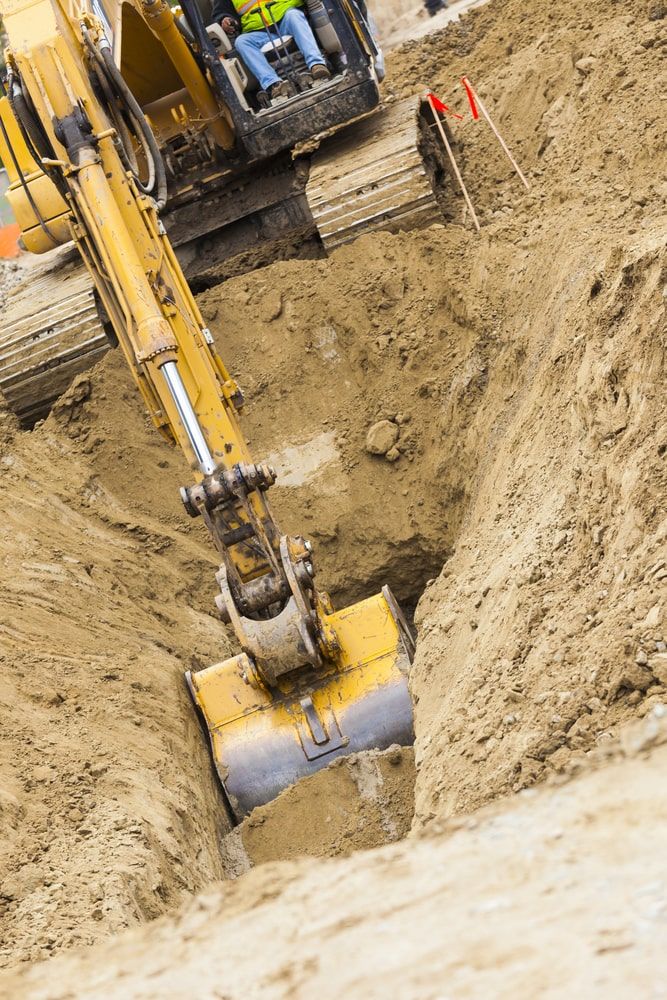Lancaster Excavation - Specialist Excavation Solutions in Lancaster, OH
Lancaster Excavation - Specialist Excavation Solutions in Lancaster, OH
Blog Article
Comprehensive Excavation Approaches: Grasping the Fundamentals for Success
The mindful preparation, specific implementation, and thorough focus to information called for in excavation projects require a thorough approach that encompasses various basic facets. The real proficiency exists not just in recognizing these principles however in effortlessly integrating them to navigate the intricacies of excavation jobs with finesse.
Comprehending Excavation Project Planning

The first phase of any type of excavation task is the preparation stage, where vital decisions are made that can substantially impact the outcome of the job. Understanding the task timeline, spending plan, and scope restraints is important for developing a detailed excavation plan that guarantees the job's success.
One trick facet of excavation task preparation is the growth of a detailed timeline that describes the sequence of target dates, activities, and turning points. This timeline functions as a roadmap for the job team, enabling them to track progress and make necessary changes to ensure the task remains on timetable. Furthermore, a well-defined budget that makes up all expenditures, consisting of devices leasing, labor prices, and products, is vital for preventing cost overruns and hold-ups. By meticulously taking into consideration all these aspects throughout the drawing board, excavation tasks can be carried out effectively and successfully, resulting in successful end results.
Dirt Analysis and Website Assessment
Performing extensive dirt analysis and site evaluation is a critical action in the preparation stage of any excavation job. Dirt evaluation involves identifying the structure, framework, and residential properties of the dirt at the excavation site. This information is vital for understanding the soil's bearing capability, dampness content, and potential for erosion, which are vital consider figuring out the excavation methods and devices required for the project.
Site examination surpasses soil analysis and includes a wider evaluation of the general website problems. This examination consists of determining any type of possible threats, such as below ground energies, ecological worries, or unsteady terrain, that could impact the excavation procedure. By completely reviewing the website, task supervisors can develop reliable excavation strategies that prioritize safety and security, efficiency, and environmental management.
Using innovative technologies like ground-penetrating radar, dirt sampling, and drone surveys can improve the precision and efficiency of soil evaluation and site evaluation. Investing time and sources in these initial actions can inevitably conserve time and prevent costly delays or issues throughout the excavation process.
Tools Choice and Usage
Reliable excavation jobs rely heavily on tactical devices choice and utilization to guarantee ideal efficiency and performance. Picking the best tools for the work is essential in making best use of effectiveness and decreasing downtime. Elements such as the sort of soil, deepness of excavation, and task scope play a considerable function in figuring out the most appropriate devices for the task available.

Along with picking the proper devices, proper usage is key to project success. Operators must be trained to manage the devices securely and effectively - excavating ohio. Routine maintenance checks and timely repair work help avoid breakdowns and guarantee regular efficiency throughout the job
Safety And Security Actions and Laws Conformity
In the realm of excavation tasks, prioritizing precaution and compliance with her comment is here guidelines is vital to guaranteeing a protected and lawfully sound functional environment. Precaution encompass a variety of practices, including conducting comprehensive website evaluations, executing correct signs and barriers, and giving appropriate safety and security training for all workers associated with the excavation process. Adherence to guidelines, such as OSHA demands in the United States, ensures that the excavation task satisfies the necessary criteria to shield workers, onlookers, and the surrounding atmosphere.

Surveillance Progression and Adjusting Approaches
Just how can predict supervisors efficiently track the advancement of excavation projects and adjust their strategies as necessary to enhance end results? Surveillance development is important for ensuring that excavation jobs remain on track and fulfill due dates.

Final Thought
To conclude, mastering the basics of extensive excavation techniques is vital for the success of any type of project. By understanding project preparation, assessing dirt and website conditions, choosing ideal tools, following safety and security regulations, and keeping track of progress, task managers can guarantee a smooth and effective excavation process. Applying these strategies will certainly cause successful outcomes and lessen possible dangers or troubles during the excavation job.
The initial phase of any kind of excavation project is the planning phase, where vital choices are made that can considerably influence the outcome of the job. Recognizing the project range, timeline, and spending plan restrictions is vital for creating a thorough excavation strategy that guarantees the task's success.
Exactly how can predict supervisors successfully track the advancement of excavation jobs and site here adapt their strategies as necessary to enhance end results? By very closely monitoring development Click Here and being willing to adjust methods, task supervisors can boost the general success of excavation projects.
By understanding task planning, analyzing soil and website conditions, choosing proper devices, conforming with security guidelines, and checking progression, task supervisors can make certain a smooth and efficient excavation process.
Report this page